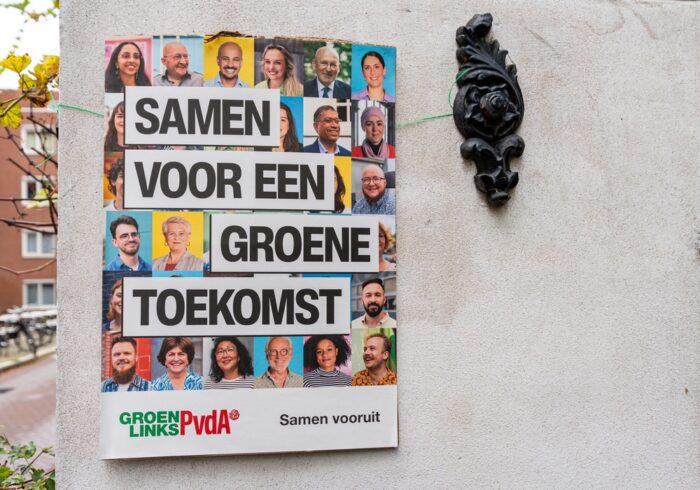The Progressive Post
An impressive landslide

The UK Labour party’s return to power after 14 years in opposition is a moment to celebrate. The Conservatives had no answers to Britain’s unprecedented economic, social, environmental and security challenges. It is a huge relief to see a competent, progressive, ambitious and pragmatic party take office. Labour went into the 2024 election with just over 200 MPs, in a parliament of 650 seats. Securing a majority of one required the party to win 125 constituencies. But last Friday morning, the British people woke up to an astonishing 412 Labour members. This translated into a huge majority of 174 over all other parties, almost exactly the same as Tony Blair secured in 1997.
Keir Starmer’s achievement is even more impressive given the starting point of the 2019 election, when Boris Johnson crushed Jeremy Corbyn and captured dozens of seats in traditional Labour areas. At the time, few observers thought Labour could win again within five years, let alone by such a margin. Scotland saw the most impressive results, with Labour going from one MP to 37 MPs north of the border. The cause was a collapse in support for the Scottish National Party, which runs the Scottish government. The SNP has been in power for almost two decades, presides over failing public services and is mired in financial scandal. In those circumstances, voters in Scotland, including many who support independence, were willing to back Scottish Labour as part of a new UK-wide government. The momentum behind independence has been stopped, at least for now, but Labour knows it must deliver for Scotland. Meanwhile, in England, Labour’s huge majority actually understated the scale of victory, because the party operated a silent non-aggression pact with the centrist Liberal Democrats. Both parties sought only to dislodge Conservative MPs and ignored the seats where the other was more likely to win. Without needing to be told, Labour and Liberal Democrat supporters each voted tactically to defeat local Conservative candidates.
The result was that the Liberals secured 72 MPs, their best showing since the 1920s, winning swathes of seats in affluent rural and suburban southern England. This pincer movement by Labour and the Liberal Democrats pushed the Conservatives further back, with the Tories slumping to 121 MPs. Some say it is the party’s worst showing since it emerged as a political bloc in the seventeenth century.
There were a few unpleasant surprises for Labour, although trivial when compared to the scale of the victory. The Green party which is further left than Labour went from one MP to four MPs. And in four seats with high Muslim populations, independent candidates won by protesting against Labour’s initially muted opposition to the war in Gaza. Jeremy Corbyn also regained his seat as an independent, after being expelled from Labour for failing to recognise the extent of the antisemitism that had prevailed when he was leader. Two of his allies also split the local left-wing vote to allow the Conservatives to win.
Labour is not used to such significant representation from rival blocs on the left and centre, whether that is Liberal Democrats, Greens or independents. The challenge from other progressive forces will probably change the character of British political debate in the House of Commons and the country more widely. With over 500 MPs on the left and centre, this is partly just an arithmetic question. But it also changes the political calculus for Labour. The party knows that next time, when it is defending all its new seats, it will be vulnerable to voters deserting the Greens or Liberal Democrats, not just the Conservatives. Keir Starmer will need to prove himself to voters concerned by global conflict, environmentalism and social justice not just those who swing between Labour and the Conservatives. He can best unite such a diverse electoral coalition by governing well. The final new group elected to the House of Commons were the five MPs of Reform UK, the new hard-right populist party of Nigel Farage. The party won more votes than the Liberal Democrats, whose votes were highly concentrated in seats they could win. By contrast, Reform UK’s vote was spread thinly across the UK, so Farage could only gain a handful of very socially conservative constituencies.
The performance of Reform UK was only a little better than that of the UK Independence Party in 2015, so it is not inevitable that the new party will break through. But mainstream politicians need to watch carefully in case Farage and his supporters in the media poison the debate and artificially skew British politics away from middle-ground public opinion. The immediate impact of Reform UK’s victory was to take even more votes away from the Conservatives. People of all political persuasions wanted to punish the government for three failed prime ministers and five terrible years of chaos. With Reform UK, those without love of the Labour party had an anti-politics, right-wing option. The populists’ success has created a huge dilemma for the Tories, who must now regain support on both the socially conservative right and the liberal centre-ground.
Following the election the UK now has more parties with significant representation than it has ever seen. There are ten blocs in parliament with four or more MPs, something that is highly unusual for a first-past-the-post voting system. This spread helps explain a curiosity of the election, that Labour won a huge majority in seats with a very low vote share. Labour secured its landslide with 34 per cent of the vote, while a figure of more than 40 per cent used to be required when the UK was dominated by two parties. This time, the distribution of votes resembled a contest held under proportional representation. Labour’s low vote share is not necessarily something to worry about for the future because almost everyone who did not back the Conservatives knew their vote was helping put Keir Starmer into 10 Downing Street. Labour’s vote declined most in seats that it already held and in places where the Liberal Democrats were the main challenger to the Tories. Where Labour was targeting Conservative incumbents, its share increased. It is an electoral curiosity that Labour won a landslide in 2024 with fewer votes than under Jeremy Corbyn in 2017 or 2019. But politics is a competitive sport when the performance of your main opponent matters too. Labour fought over 600 individual contests, not one national poll. The party’s targeting was forensic, and time after time, it came ahead of the Conservatives or SNP in the seats it needed to win.
Photo Credits: Shutterstock.com/AndySoloman




